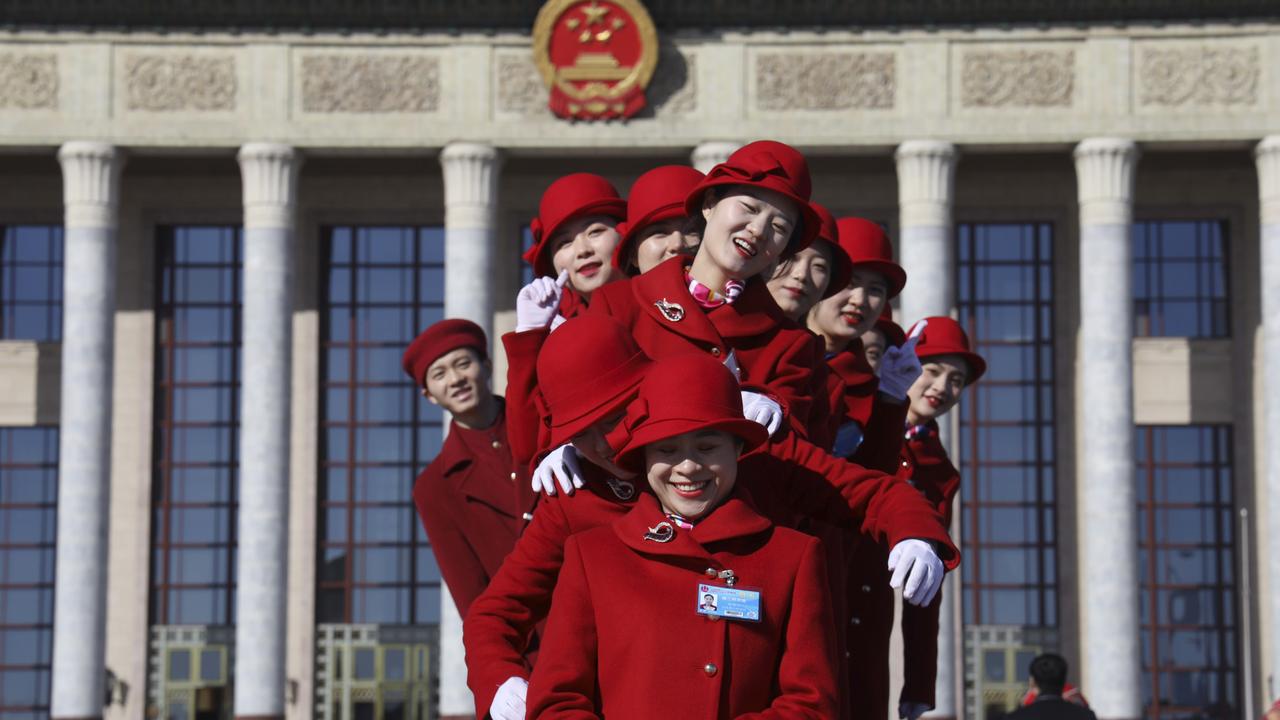Why bulls can’t bear the thought of missing out
Global sharemarkets are still more likely to rise on a contrarian basis, according to Bank of America Merrill Lynch.
Global sharemarkets are still more likely to rise on a contrarian basis, according to Bank of America Merrill Lynch.
The US investment bank’s latest monthly survey of 186 global funds managing a combined $US557 billion ($791bn) found the “pain trade” is still up.
It suggests the surprisingly strong rise in share prices this year could continue to generate significant buying motivated by “FOMO” or fear of missing out, at least in the short term.
Sharemarkets certainly aren’t “cheap” on a forward price-to-earnings basis after recovering strongly on central bank policy backflips and a cooling of the US-China trade war this year.
Indeed, after a 20 per cent rise in the S&P 500 since Christmas Eve, the forward PE ratio of the US benchmark is back above the long term average of 16 times.
Barring some kind of “shock”, the 2018 sell-off may have led investors to reduce their exposure so much that sharemarkets are no longer an accident waiting to happen. Moreover, with many expecting sharemarkets to retest their December lows in the short term, they might actually creep higher until they become overvalued or the earnings outlook deteriorates.
That’s backed by the BAML survey which found — somewhat counterintuitively — that while profit expectations rose and interest rate expectations fell and investor’s cash also declined, their allocations to global equities dropped to their lowest level since September 2016.
The BAML Bull & Bear Indicator remained at a “neutral” level of 4.7 out of 10. The indicator hit an “extreme bull” reading of 8.6 in January 2018, generating a timely sell signal. It hit an “extreme bear” reading of 1.8 on January 3rd, generating a “buy” signal for risk assets after a $US20 trillion bear market in stocks ended with the worst December for US shares since 1931.
“There is simply no ‘greed’ to sell in equities,” said BAML’s chief investment strategist Michael Hartnett after reviewing the global fund manager survey conducted from March 8th to 14th.
Similarly, the survey found respondent’s expectations for global economic growth and corporate earnings per share rose for a second consecutive month — despite continued weakness in global economic survey data such as purchasing manager’s surveys and NAB’s monthly business survey — but China and corporate debt concerns lingered.
Interestingly, the biggest “tail risk” for investors was a “China slowdown” — not a “trade war”.
Asked what companies should be doing with their cashflow, 46 per cent of respondents said “improve balance sheet”. Only 29 per cent said “increase capital expenditure” — the lowest since October 2009 — and 18 per cent said “increase share buybacks”.
An extremely easy central bank policy backdrop was the primary driver of improving macro- economic sentiment, with 39 per cent of survey respondents now thinking liquidity conditions are positive, up 16 percentage points on last month.
Hartnett said it was the best two-month improvement in perceived liquidity conditions since the third round of quantitative easing in the US.
More than one-third said the Federal Reserve’s interest rate hiking cycle was over, 53 per cent said short-term interest rates would be unchanged or lower over the next 12 months, and their bond yield forecasts were the lowest since July 2012, which was a “big reason cyclical stocks remained shunned”.
But, based on the survey, fund managers’ asset allocations look “pessimistic”.
“Investors are long on defensive assets that perform well when growth and interest rates fall, and short cyclical assets that perform well when growth and rates rise,” Hartnett noted.
Their global equities allocation fell 3 percentage points to a 3 per cent overweight, the lowest since September 2016. Hartnett said it had only gone negative once in the past six years.
And their allocation to bank stocks dropped to the lowest since September 2016.
The most “crowded” trades now are short European stocks and long US dollars.
And, relative to the 20-year history of the fund manager survey, investors are long on cash.
“Long stocks-short cash, long EU-short emerging markets, long Industrials-short REITS are contrarian,” Hartnett said.
BAML’s “cash rule” and “volatility rule” say investors should be “long risk”.




To join the conversation, please log in. Don't have an account? Register
Join the conversation, you are commenting as Logout